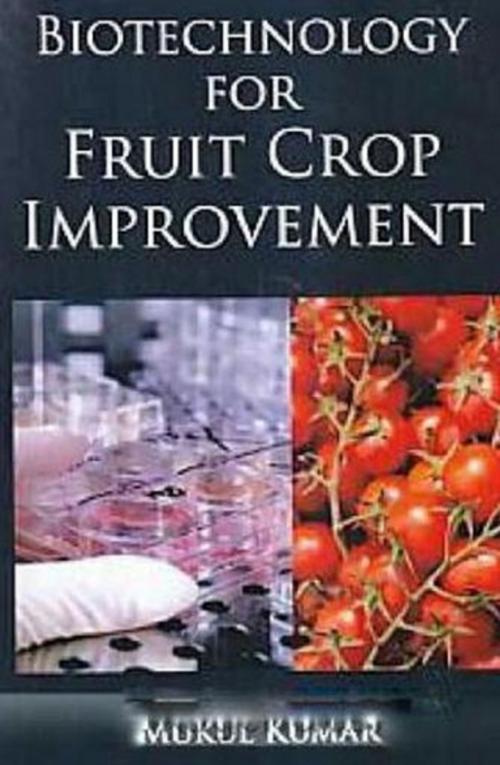Biotechnology For Fruit Crop Improvement
Nonfiction, Science & Nature, Science, Biological Sciences, Biotechnology, Technology, Agriculture & Animal Husbandry| Author: | Mukul Kumar | ISBN: | 9789388040839 |
| Publisher: | Centrum Press | Publication: | June 30, 2017 |
| Imprint: | Centrum Press | Language: | English |
| Author: | Mukul Kumar |
| ISBN: | 9789388040839 |
| Publisher: | Centrum Press |
| Publication: | June 30, 2017 |
| Imprint: | Centrum Press |
| Language: | English |
Fruits are a major source of fibre, nutrients, and antioxidants; all essential for a healthy diet. Fruit crops play a key role in the economy of both developed and developing countries, and as such, efforts have been made to improve the quality of these crops using both conventional breeding and genetic engineering, which emerged as a major tool for introducing desirable genes in fruit crops. However, societal distrust for such technologies, coupled with misleading and false information regarding their safety, means that traditional GM technology has been difficult, or impossible to commercialize successfully. For the past two decades, genetic transformation of fruit crops has mainly focused on the enhancement of biotic and abiotic tolerance; however, there are few cases of field evaluation and commercialization of these transgenic plants worldwide. Induced and spontaneous mutations have played an important role in developing improved cultivars of various fruit trees as a supplementary method to conventional breeding. Genes governing important agronomic or quality phenotypes can be verified and transferred by modern biotechnology tools into elite cultivars to ultimately achieve genetic improvement in fruit and vegetable crops. This book is an essential reading for all those involved both in cultivation and the processing of fruit and vegetables.
Fruits are a major source of fibre, nutrients, and antioxidants; all essential for a healthy diet. Fruit crops play a key role in the economy of both developed and developing countries, and as such, efforts have been made to improve the quality of these crops using both conventional breeding and genetic engineering, which emerged as a major tool for introducing desirable genes in fruit crops. However, societal distrust for such technologies, coupled with misleading and false information regarding their safety, means that traditional GM technology has been difficult, or impossible to commercialize successfully. For the past two decades, genetic transformation of fruit crops has mainly focused on the enhancement of biotic and abiotic tolerance; however, there are few cases of field evaluation and commercialization of these transgenic plants worldwide. Induced and spontaneous mutations have played an important role in developing improved cultivars of various fruit trees as a supplementary method to conventional breeding. Genes governing important agronomic or quality phenotypes can be verified and transferred by modern biotechnology tools into elite cultivars to ultimately achieve genetic improvement in fruit and vegetable crops. This book is an essential reading for all those involved both in cultivation and the processing of fruit and vegetables.















